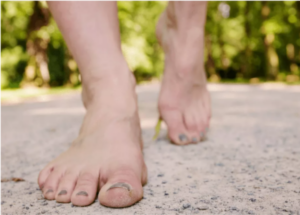When it comes to personal care, foot scrubbers are a popular tool for maintaining soft, clean feet. However, not all foot scrubbers are created equal, nor are they suitable for everyone. The skin on our feet, like the rest of our body, varies from person to person, and what works for one individual may not work for another. It is essential to consider whether foot scrubbers are appropriate for all skin types, especially given the diversity in skin sensitivities and conditions.
Firstly, understanding the different skin types is crucial in determining the right kind of foot scrubber. Skin can range from dry and flaky to oily and sweat-prone, each type requiring different care. The material and composition of foot scrubbers also play a significant role in their suitability for various skin types. From natural pumice stones to synthetic mesh, the choice of material can affect the skin differently.
Potential allergens in foot scrubbers are another important consideration. Ingredients and materials used in foot scrubbers, such as latex or certain chemicals in cleansers, can trigger allergic reactions in some users. Additionally, the texture and abrasiveness of the scrubber must be matched appropriately to the user’s skin type to avoid irritation or damage. Gentle exfoliation might benefit sensitive skin, whereas more resilient skin could handle a rougher texture.
Lastly, individuals with specific skin sensitivities or medical conditions, such as eczema or psoriasis, need to take extra caution when selecting a foot scrubber. These conditions can make the skin highly reactive to physical exfoliation and certain materials. By examining these aspects, the article will explore whether foot scrubbers are indeed suitable for everyone and how to select the right type based on individual skin needs and health considerations.
Different Skin Types
Different skin types require distinct care and considerations, especially when it comes to products that come in direct contact with the skin, such as foot scrubbers. Understanding various skin types is crucial in determining whether foot scrubbers are suitable for everyone.
The primary skin types are normal, dry, oily, combination, and sensitive. Each type has specific characteristics and needs. For instance, dry skin often requires extra moisture and may be more prone to irritation from overly abrasive scrubbers. Oily skin, on the other hand, might benefit from more frequent exfoliation to prevent the buildup of oils and debris.
Sensitive skin, which is particularly reactive, can be easily aggravated by physical exfoliants. Users with this skin type need to be especially cautious about the type of foot scrubber they use. It’s important that the scrubber is not too rough and that it doesn’t contain any potential allergens or irritants. Hypoallergenic materials or those with natural, soft fibers might be more appropriate for sensitive skin.
Individuals with combination skin might find that different parts of their feet react differently to the same scrubbing tool, necessitating a more tailored approach to choosing a foot scrubber. It’s often helpful to look for a product that balances effectiveness without being too harsh.
For those with specific skin conditions like eczema or psoriasis, it’s especially vital to consult with a healthcare provider before starting any new skin care regimen, including the use of foot scrubbers. These conditions can lead to heightened skin sensitivity and potential complications.
In conclusion, while foot scrubbers can be beneficial for maintaining clean and smooth feet, it’s important to choose one that corresponds appropriately with one’s skin type to avoid any adverse effects. Knowing your skin type and any specific sensitivities is key in selecting a foot scrubber that will not only be effective but also safe for use.
Material and Composition of Foot Scrubbers
The material and composition of foot scrubbers are crucial factors that dictate their suitability for different skin types. Foot scrubbers can be made from a variety of materials, each with unique properties and effects on the skin. Common materials include plastic, metal, natural sponges, pumice stones, and brushes made from various natural or synthetic fibers.
Pumice stone, for instance, is a popular natural abrasive material that helps in removing dead skin cells and calluses effectively. However, the rough nature of pumice might be too harsh for those with sensitive skin or certain skin conditions like eczema or psoriasis. Synthetic materials, like plastic mesh or silicone, tend to be gentler and can be a better option for these individuals.
Furthermore, the composition of foot scrubbers often includes handles or straps made from different materials, which can also affect their usability and hygiene. Metal parts, for example, are durable and easy to clean but can sometimes feel cold and uncomfortable. Plastic handles are lightweight and warm but may not offer the same longevity or eco-friendliness.
It’s also important to consider the environmental impact of the materials used in foot scrubbers. Natural materials are generally more biodegradable and environmentally friendly compared to synthetic alternatives, which can take a long time to decompose and might release harmful chemicals into the environment.
Therefore, when choosing a foot scrubber, one must consider not only the skin type but also personal needs for comfort, hygiene, and environmental impact. Each material offers distinct advantages and disadvantages, making it essential to select the most appropriate type based on individual preferences and skin conditions.
Potential Allergens in Foot Scrubbers
When considering whether foot scrubbers are suitable for all skin types, it’s important to discuss potential allergens that can be found in these products. Foot scrubbers, designed to exfoliate and clean the feet, can be made from a variety of materials, each carrying the risk of causing allergic reactions in some individuals.
Allergens in foot scrubbers often stem from the materials used in their construction. For example, natural bristle brushes made from animal hair can provoke reactions in people allergic to those specific animal proteins. Similarly, synthetic materials, such as certain plastics or rubber, can contain chemical compounds that trigger allergies. Even foot scrubbers that incorporate plant-based materials might pose risks for those with sensitivities to specific botanicals.
Additionally, foot scrubbers can sometimes contain latex, which is a common allergen. People who are allergic to latex may experience reactions ranging from skin rashes to more severe responses if they use a scrubber containing this material. It’s crucial for consumers with known allergies to thoroughly check the product labels or contact manufacturers for detailed information about the materials used.
Moreover, the risk of allergic reactions is not limited to the materials alone. Some foot scrubbers come pre-treated with cleansing solutions or infused with essential oils and fragrances. These substances might cause skin irritation or allergic dermatitis, especially in users with sensitive skin or pre-existing dermatological conditions.
To ensure safety and avoid potential allergens, individuals looking to purchase a foot scrubber should consider hypoallergenic options specifically designed to minimize the risk of skin reactions. It is also advisable to perform a patch test before using a new foot scrubber. By applying the scrubber to a small area of skin and waiting to see if any adverse reaction occurs, users can better ensure the product’s compatibility with their skin type. In summary, while foot scrubbers can be an effective tool for maintaining foot hygiene and health, awareness and caution are necessary to avoid allergens and ensure suitability for all skin types.
Foot Scrubber Texture and Abrasiveness
When considering foot scrubbers, it’s crucial to take into account the texture and abrasiveness of the product. These characteristics play a significant role in determining whether a foot scrubber is suitable for all skin types. Foot scrubbers are designed to remove dead skin cells and calluses, and their effectiveness largely depends on their texture and how abrasive they are.
For individuals with normal skin, a moderately abrasive scrubber can be effective in exfoliating dead skin without causing irritation. However, for those with sensitive or thin skin, a highly abrasive scrubber might be too harsh, leading to skin damage, irritation, or even bleeding. It’s important for these individuals to opt for scrubbers with a softer, finer texture that can gently cleanse without causing harm.
On the other hand, people with thicker or more calloused skin might require a foot scrubber with more abrasive qualities to effectively remove the tougher skin layers. These users benefit from scrubbers that have a coarser texture, which helps in efficiently tackling hard-to-remove dead skin and calluses.
Therefore, when selecting a foot scrubber, one should consider the specific needs of their skin type. Manufacturers often provide guidelines on the level of abrasiveness of their products, and paying attention to these details can help prevent skin damage and ensure that the scrubber is effective. Consulting with a dermatologist can also provide personalized advice, especially for those with skin conditions or extreme sensitivity, to select the most appropriate type of foot scrubber.
Skin Sensitivity and Medical Conditions
When discussing whether foot scrubbers are suitable for all skin types, it’s essential to consider the impact of skin sensitivity and underlying medical conditions. Skin sensitivity varies widely among individuals and can significantly affect how one reacts to different types of foot scrubbers. People with sensitive skin might experience irritation or allergic reactions from scrubbers that are too abrasive or made from materials that trigger their sensitivities.
Medical conditions, such as diabetes or psoriasis, can also play a crucial role in determining the suitability of a foot scrubber. For instance, individuals with diabetes often have reduced sensation in their feet, making them less aware of injuries caused by overly harsh scrubbing. Similarly, those with skin conditions like eczema or psoriasis might find that certain textures exacerbate their symptoms.
It is advisable for people with sensitive skin or medical conditions affecting their skin to consult with a healthcare provider before using any type of foot scrubber. This is to ensure that they choose a product that is safe and beneficial for their specific health needs. Additionally, they might need to look for scrubbers specifically designed for sensitive skin, which typically feature softer, non-abrasive materials and gentler cleaning properties.




